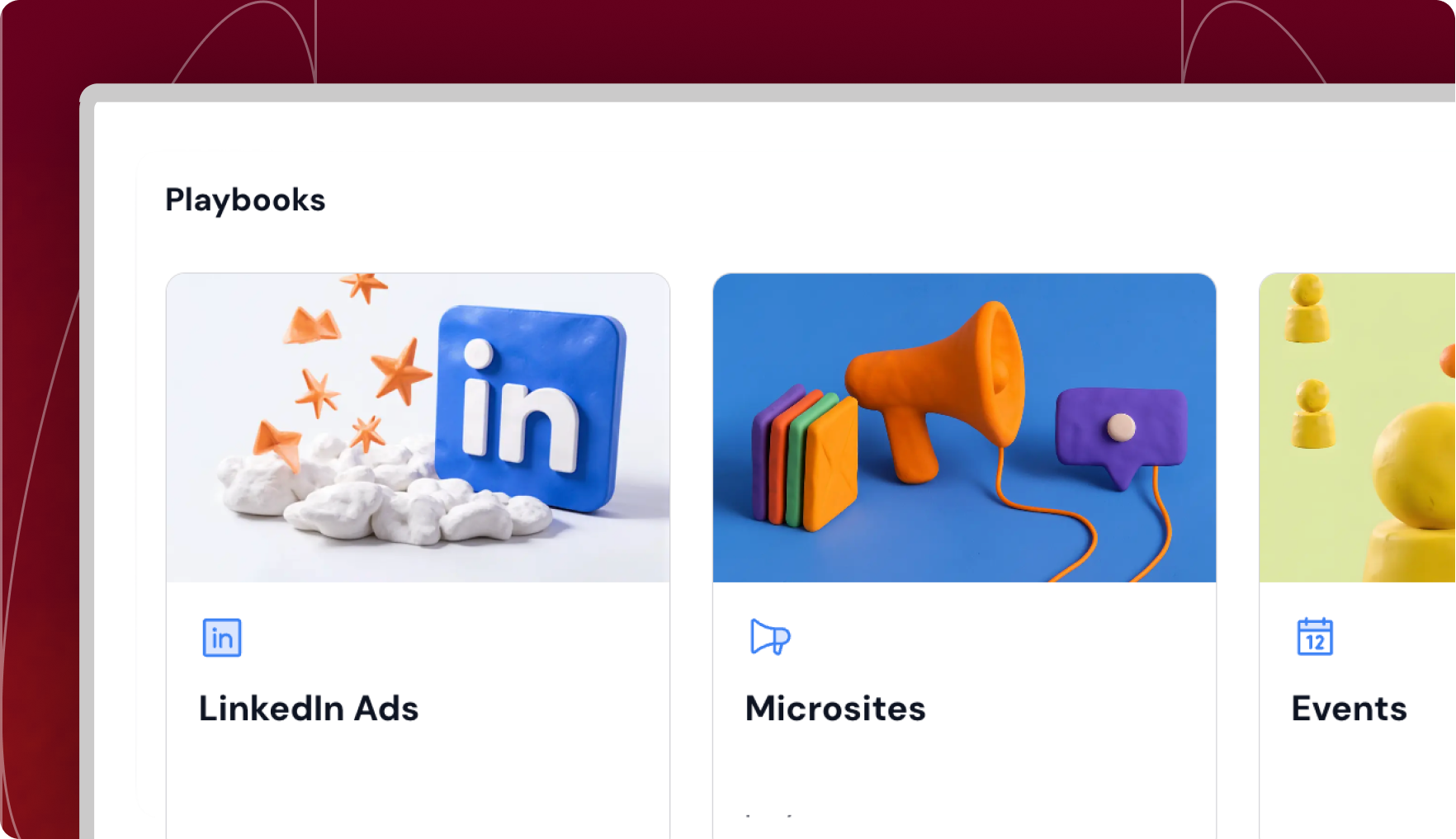Do you ever feel overwhelmed by ads and content that don't interest you when you go online?
Website personalization can help! It means customizing what you see on a website based on your preferences.
Businesses do this to make your online experience better. They show you things you're more likely to enjoy.
In this article, we'll look at how you can benefit from website personalization. Let's get started!
Benefits of Website Personalization
Enhanced Customer Experiences
Personalization is a powerful tool for improving customer experiences. It helps drive conversions and boost user engagement. Tailoring website content to individual needs allows businesses to create relevant and personalized experiences that customers can relate to.
Strategies such as marketing automation, a/b testing, and product recommendations play a crucial role in delivering personalized content. Companies can also use lead nurturing and personalized messaging to connect with customers on a more personal level. Utilizing tactics like effective email marketing, customer onboarding, and personalized sales can further enhance the customer experience.
By employing technology like machine learning and recommendation software, businesses can better target their market and stay competitive in the digital world. Focusing on understanding customers can lead to positive brand experiences that foster customer loyalty and increase customer lifetime value.
Improved Lead Nurturing
Implementing strategies can significantly enhance lead nurturing efforts to improve conversions.
Website personalization, marketing automation, a/b testing, and personalized messaging are key.
Personalized content tailored to individual needs boosts user experience and increases brand loyalty.
Data analytics helps understand customer behaviour for hyper-personalized experiences.
Technology allows for personalized web experiences, content, and email marketing to optimize lead nurturing.
Understanding customer insights aids in developing effective marketing campaigns.
Personalized experiences in the digital world enhance customer lifetime value.
Shortened Sales Cycles
Companies can shorten their sales cycles by implementing various strategies. These include:
- Using website personalization to enhance user experience.
- Providing relevant content to potential customers.
- Incorporating marketing automation and personalized messaging to effectively nurture leads.
- Guiding them through the buyer's journey more efficiently.
- Conducting A/B testing and offering product recommendations to optimize customer experiences.
- Driving conversions.
- Leveraging personalized content and robust email marketing to engage customers and build brand loyalty.
- Utilizing advanced technology like machine learning and recommendation software to tailor marketing campaigns.
- Targeting specific buyer personas.
- Understanding customer behaviour better.
Increased Brand Affinity
Website personalization enhances user experience. It provides relevant content tailored to individual needs.
By using marketing automation, personalized messaging, and product recommendations, brands create a hyper-personalized experience.
A thoughtful approach to website design and content personalization leads to positive brand experiences. This increases brand equity and customer loyalty.
Companies deepen customer understanding and drive conversions through a/b testing, lead nurturing, and personalised sales tactics.
Incorporating technology like machine learning and recommendation software helps deliver personalized experiences. This positions businesses competitively in the digital world.
This approach boosts website views, sales cycles, and improves customer lifetime value.
Website personalization fosters increased brand affinity and establishes strong connections with buyers. This is based on their unique preferences and behaviours.
Boosted Conversions
Implementing website personalization strategies can greatly enhance conversions.
These strategies include relevant content, personalised messaging, and product recommendations.
By tailoring the user experience to individual needs through personalised content and brand equity, businesses can increase website views and sales cycles.
Marketing automation tools like A/B testing, lead nurturing, and personalised experience through machine learning can boost conversions.
Technology such as recommendation software and personalised web design can lead to a hyper-personalised experience for customers, increasing loyalty and positive brand experiences.
This can impact customer behaviour positively, resulting in higher customer lifetime value.
Targeted marketing campaigns, personalised sales, and product development based on buyer personas can enhance competitive positioning and drive impactful buyer experiences on product pages.
Website personalization is essential in creating powerful email marketing and creative strategies, including social media campaigns, that cater to the customer's needs.
Best Practices for Website Personalization
Segmenting Audience for Relevant Offers
Audience segmentation helps personalize websites.
It involves understanding customer behaviour and needs to tailor content.
This leads to more conversions and positive brand experiences.
Strategies like a/b testing, product recommendations, and personalized messaging can improve the user experience.
Utilising technology such as machine learning and recommendation software can enhance the personalization process.
Effective segmentation enables targeted marketing campaigns that connect with specific buyer personas, boosting sales and customer lifetime value.
In the digital product market, website personalization is crucial for success in website design and content marketing.
Tailoring Calls to Action
Calls to action can be tailored to specific audience segments through website personalization.
This involves using marketing automation and user experience insights to create relevant content that meets individual needs.
A/b testing and personalized content can enhance customer experiences, increasing conversions.
Personalized messaging in marketing campaigns, along with technology like machine learning, can provide hyper-personalized experiences on the website.
This not only boosts website views but also strengthens brand equity.
Tailoring calls to action based on customer understanding can shorten sales cycles and build customer loyalty.
Utilizing personalization tactics, such as effective email marketing and customized sales processes, can guide customers through the buyer journey.
Additionally, incorporating product recommendations and personalized experiences can improve customer onboarding and drive product development.
In the digital world, tailoring calls to action is a powerful strategy for creating positive brand experiences and enhancing customer lifetime value.
Personalizing Content Based on Customer Insights
Customer insights can help tailor personalized content on a website. This can be done by using marketing automation, a/b testing, and product recommendations. Understanding customer behaviours and preferences allows businesses to create relevant content that resonates with individual needs. This, in turn, improves user experience and boosts conversions.
Strategies like lead nurturing, personalized messaging, and effective email marketing campaigns enable brands to deliver personalized experiences. These experiences help in building customer loyalty and increasing customer lifetime value. Personalized web experiences, content personalization, and customer understanding through machine learning technology all contribute to creating a hyper-personalized experience.
This not only strengthens brand equity but also positions businesses competitively in the digital world. By integrating customer insights into website design, recommendation software, and creative marketing efforts, brands can deliver positive brand experiences. These experiences effectively communicate product value to target markets.
Implementing Website Personalization Strategies
Utilizing Data Analytics for Personalization
Data analytics can transform website personalization.
Businesses can tailor content based on customer behaviour and preferences.
By analysing user data, companies can create a hyper-personalized experience.
This includes suggesting relevant products or content based on past interactions.
The result is an enhanced user experience, increased conversions, and improved customer loyalty.
Marketing automation tools, when combined with data analytics, can optimize personalized content even further.
This leads to more effective marketing campaigns and tailored customer experiences.
Tactics such as A/B testing, product recommendations, and personalized messaging can drive customer engagement and satisfaction.
Using machine learning technology allows businesses to deliver individualized experiences that resonate with target audiences.
This positively impacts brand equity.
In the digital world, using data analytics for website personalization is a powerful tool for businesses.
It helps them stay competitive and provide exceptional customer experiences.
Choosing the Right Tools for Customization
When choosing tools for website personalization, businesses should consider a few factors:
- Customer understanding
- User experience
- Relevant content
Understanding customer behaviour and individual needs is essential. By doing so, businesses can tailor their website views to provide a personalized experience.
Determining the specific needs of their website is vital when choosing the right customization tools, such as:
- Marketing automation
- A/B testing
- Product recommendations
Key features to look for in customization tools include:
- Personalized messaging
- Personalized content
- Powerful email marketing
These features can enhance customer experiences and drive conversions. Utilizing technology like machine learning and recommendation software can help businesses deliver hyper-personalized experiences and increase brand equity.
Incorporating personalization tactics in marketing campaigns, social media campaigns, and customer onboarding can lead to positive brand experiences and customer loyalty. Having a personalized web experience in the digital world can differentiate businesses in competitive positioning and enhance customer lifetime value.
Testing and Optimizing Personalized Campaigns
A/B testing is a useful tool to measure the impact of personalized campaigns. It compares different versions of marketing content to see which performs better in terms of conversions and user experience.
By testing variations of personalized content, marketers can gather insights to refine their strategies and drive better results. Continuous optimization of personalized campaigns can be achieved through marketing automation. This involves using data-driven insights to tailor content to individual needs and utilising machine learning to deliver hyper-personalized experiences.
By analysing customer data and analytics, marketers can gain a deeper understanding of customer behaviour, preferences, and buying patterns. This enables them to create more relevant content and personalized messaging that resonates with their target audience.
Leveraging technology and data to personalize marketing campaigns can enhance customer experiences and brand equity. It also drives sales by delivering personalized content that addresses the specific needs and interests of individual customers. Through personalized web experiences, powerful email marketing, and personalized product recommendations, businesses can effectively engage customers throughout the sales cycle. This fosters customer loyalty and maximizes customer lifetime value.
Example 1: Amazon's Personalized Recommendations
Amazon uses personalization tactics to tailor its website for individual needs. They employ technology like machine learning and recommendation software to offer hyper-personalized experiences. This leads to improved user experiences, relevant content, and personalized messaging in marketing campaigns.
The personalized web experience enhances customer understanding, resulting in increased website views and sales cycles. This fosters customer loyalty through positive brand experiences. Amazon's email marketing, personalised sales, and product development are driven by data obtained from personalized content.
By focusing on buyer experiences and personas, Amazon strengthens customer loyalty and enhances customer lifetime value. Their use of personalized recommendations showcases the impact of content personalization in creating powerful customer onboarding and lead nurturing strategies.
Challenges in Website Personalization
Businesses face challenges when implementing website personalization strategies. These challenges include creating relevant content, conducting effective A/B testing, and providing personalized experiences across digital platforms.
Technological advancements have made personalization easier and more complex. Marketing automation tools and machine learning allow for hyper-personalized experiences. However, the complexity of digital products and web design requires continuous innovation.
Personalized messaging and product recommendations need to align with customer behaviour to drive conversions and loyalty. Despite these challenges, businesses can use recommendation software and personalised sales strategies to enhance customer experiences and stay competitive in the digital world.
Future Trends in Website Personalization
Artificial intelligence and machine learning are changing how website personalization works. They help brands create custom experiences for users.
By analysing lots of data, these technologies deliver content tailored to individual needs. This boosts conversions and betters user experience.
In marketing, machine learning can fuel custom messaging and product suggestions. This lifts lead nurturing and overall customer experiences.
Augmented reality is about to transform website personalization. It offers engaging, interactive experiences that captivate users.
As data privacy and personalization rules tighten, brands must ensure they comply while offering personal content.
With tech advancing, website personalization strategies will evolve. This will involve a/b testing, custom content, and understanding customers to boost sales and loyalty.
Personalized web experiences are a potent way for brands to stand out online. They create positive interactions that raise customer loyalty and value.
Conclusion
Website personalization improves user experience. It tailors content and features to individual preferences. This involves analysing user data and behaviour. The goal is to provide targeted recommendations and personalized messaging.
Implementing personalization strategies can result in:
- Higher engagement
- Increased conversion rates
- Improved customer loyalty
Technology and data analytics play a key role. Websites can customise their content effectively. This meets the unique needs and interests of each visitor.
Generated £1.3M pipeline by focusing on UTM parameters personalisation.


Generated £1.3M pipeline by focusing on UTM parameters personalisation.







